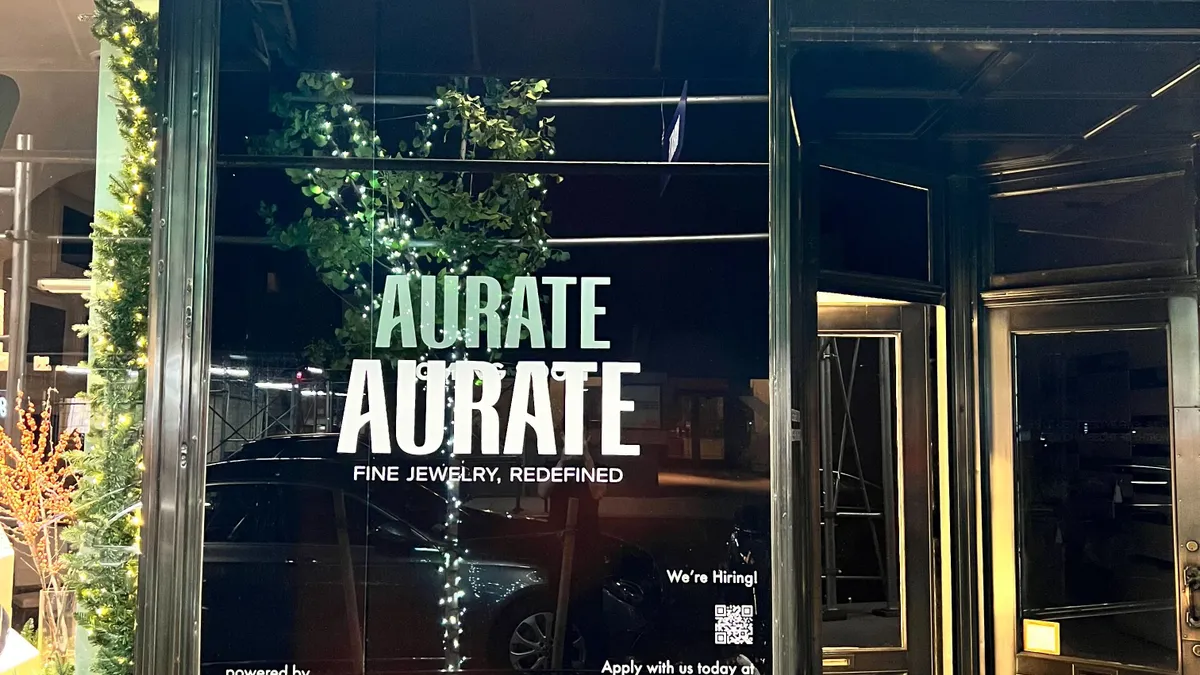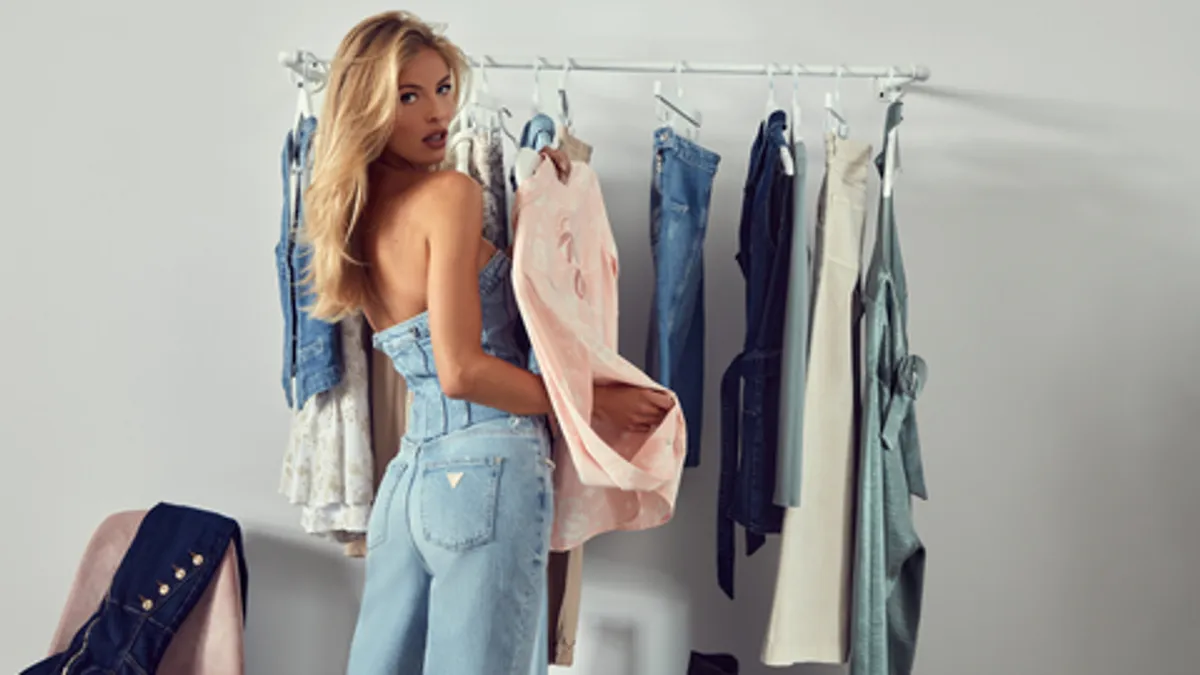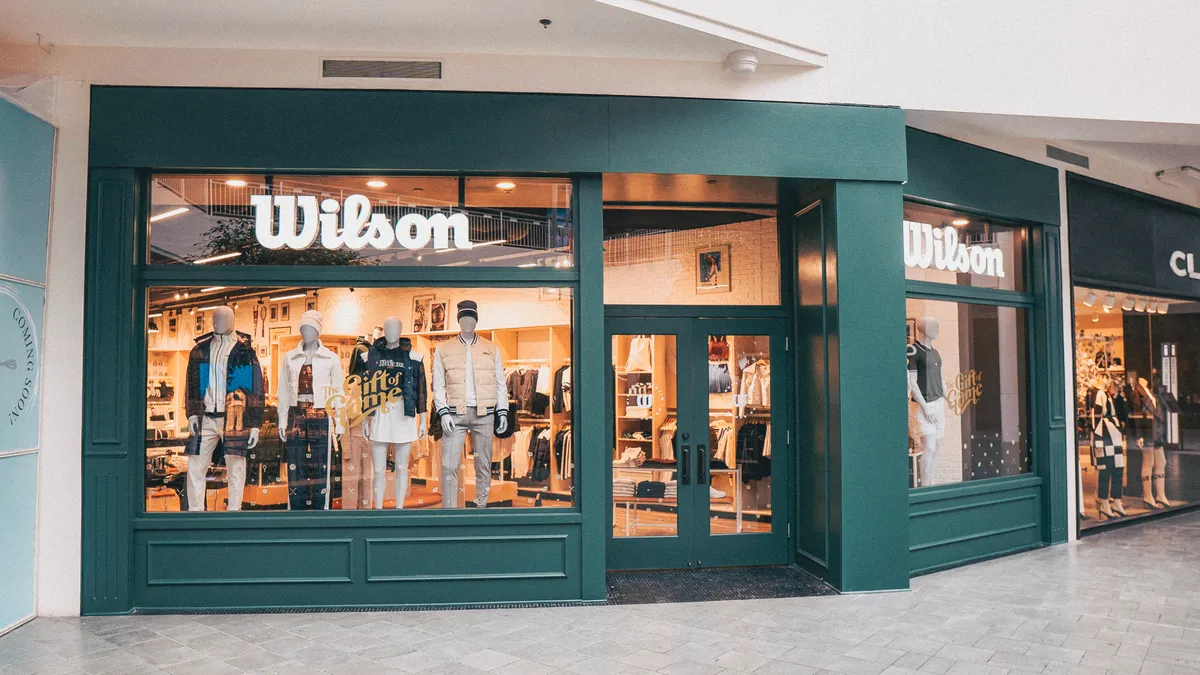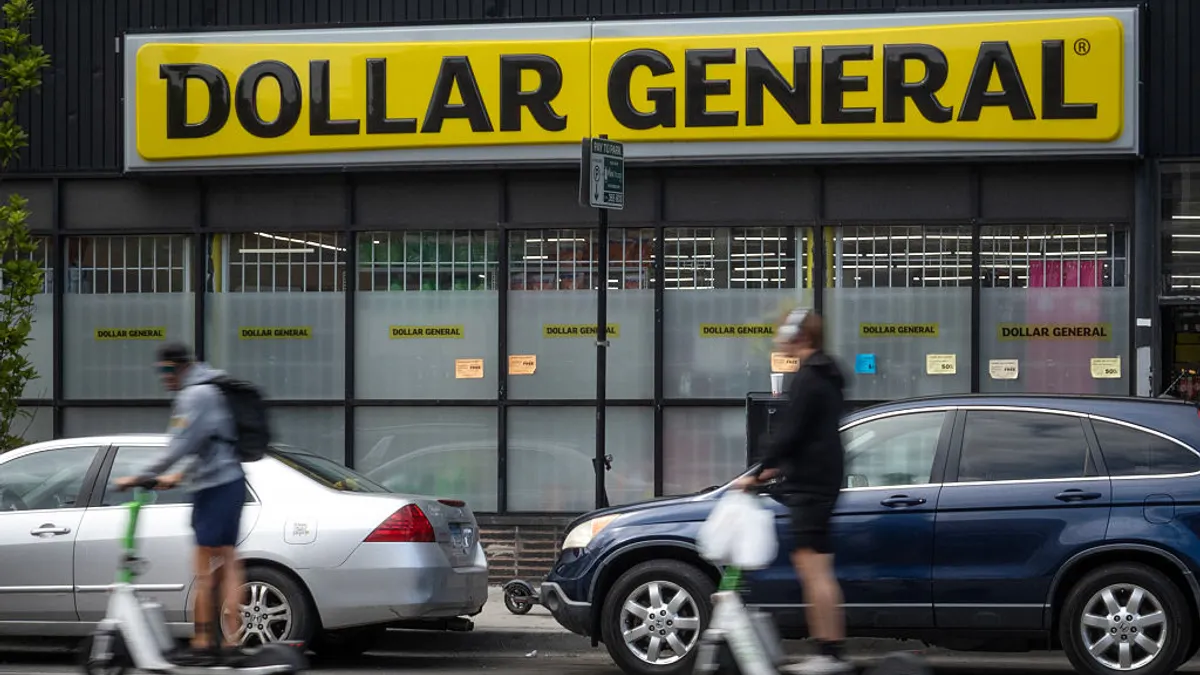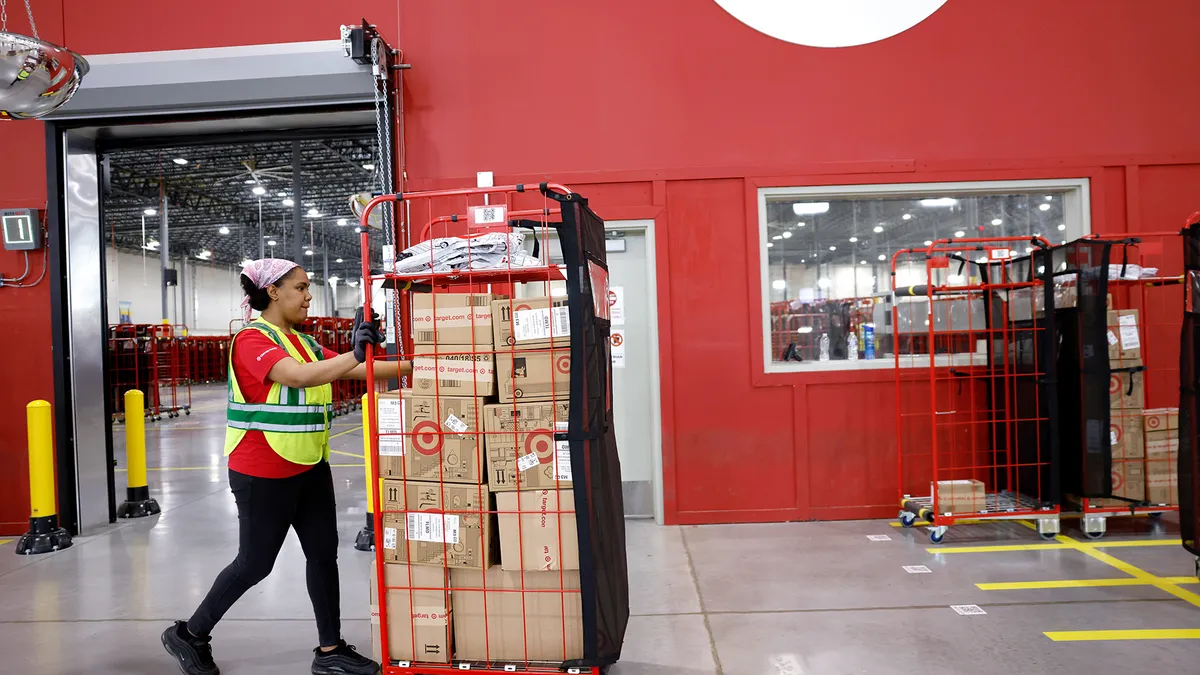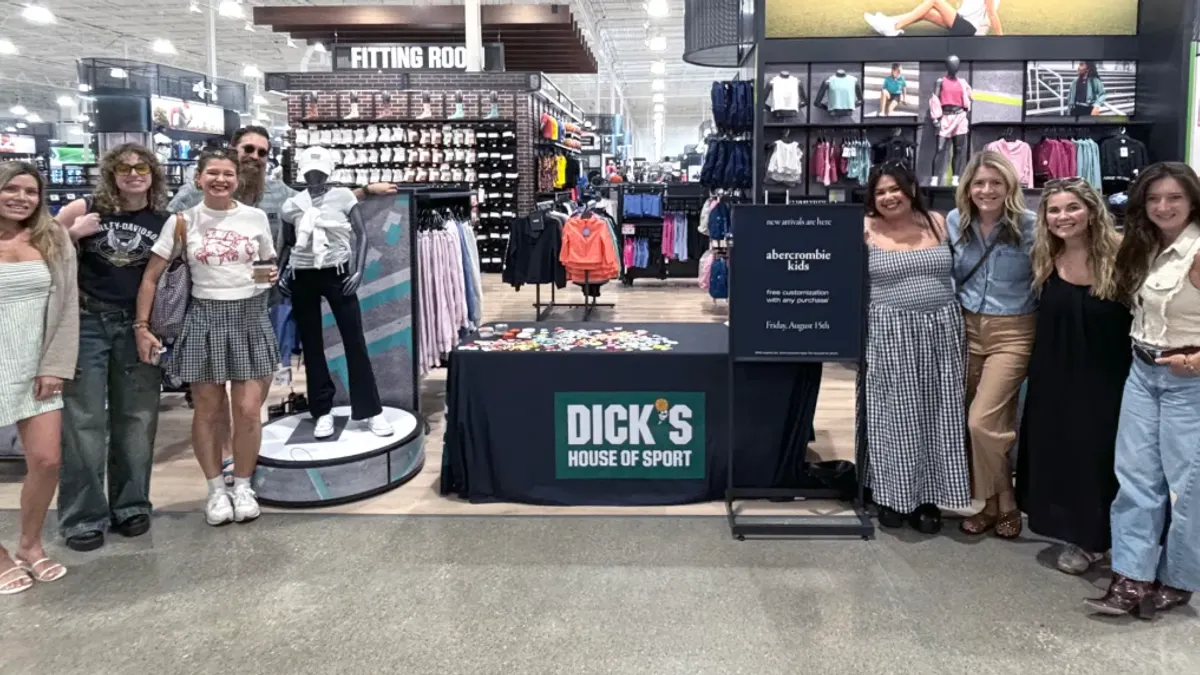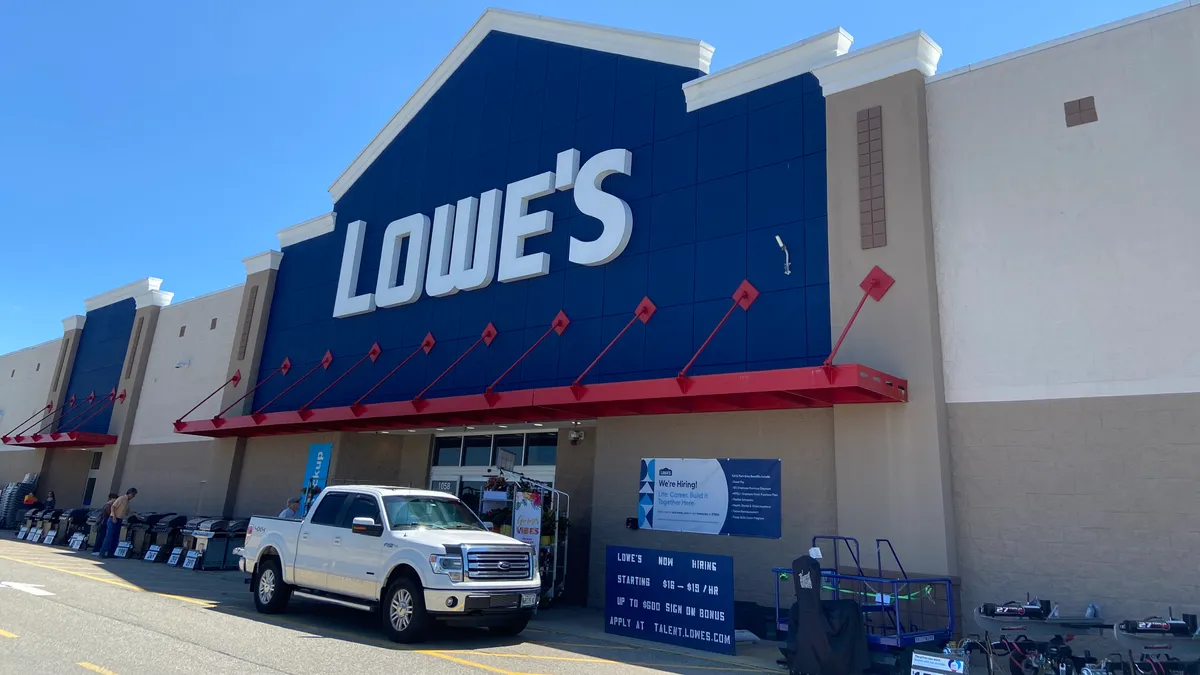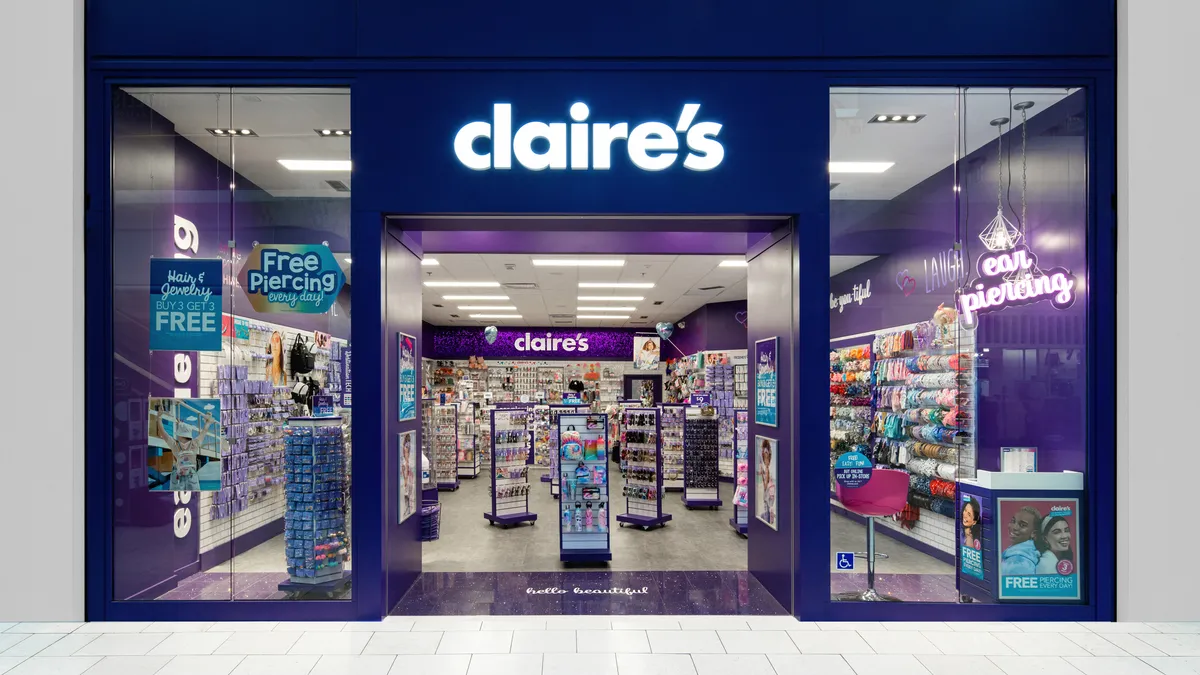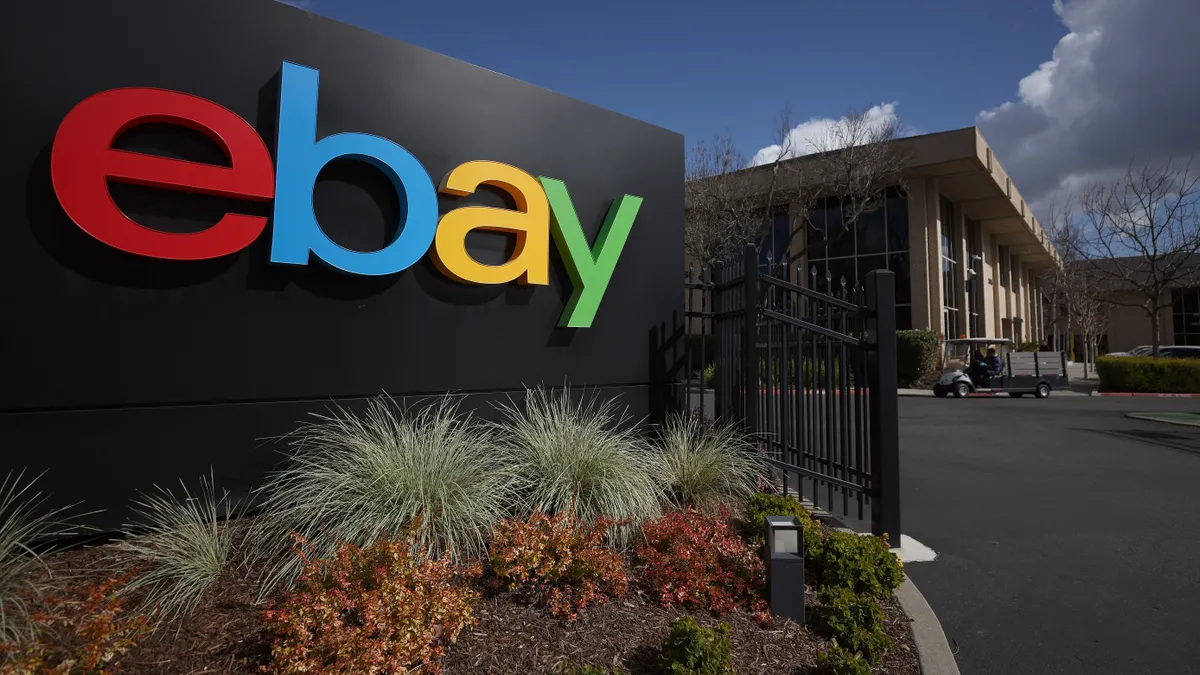DTC brands are still picking up the threads of their brick-and-mortar strategies after the pandemic severed them in 2020. Jewelry company Aurate is one of them, officially re-entering physical retail by opening stores in New York and San Francisco after shuttering its two permanent locations a couple of years ago.
"We always have been primarily online so it wasn't necessarily a huge impact for the top line, but more from the fact that we really much believe in retail," co-CEO of Aurate Sophie Kahn said of having to close down its stores. "We think it really improves the customer experience when you see us 360 and we worked a lot on building the stores. We were just so proud. We had like the perfect final store concept in February 2020 — and you know what happened in March."
Aurate owes its existence to brick and mortar, according to Kahn. When she and co-CEO Bouchra Ezzahraoui were considering founding the business, they opened a 10-day pop-up in SoHo to see if there was any interest in their product. It was easier than building out a website and both were working other jobs at the time.
"We just put the product out there on literally Ikea tables and it sold like crazy," Kahn said. "Before the 10 days were over, we had sold out of everything and that's when we knew, 'Wow, it really worked.'"
Another benefit was the product feedback Aurate received from everyone that stopped by. That origin story ultimately impacted how Aurate pursues physical retail now, testing new markets by opening pop-up stores and committing to permanent ones when the data shows there's a reason to.
"A week later we quit," Kahn said. "It was all because of retail."
'The data just tells us to go to these places'
With consumers feeling more comfortable venturing outside of the house, Aurate is returning to the plans it set aside in 2020. It's one of several DTC brands rediscovering brick and mortar in a better leasing environment: Intimates brand Knix opened its first U.S. stores in the fall last year (originally planned for 2020), and apparel brand Faherty returned even earlier, opening seven new stores in Q4 2020 thanks to great deals on rent.
Newcomers including Parade, Savage X Fenty and Wilson have also recently opened stores as the fear of physical retail has eased some.
For Aurate, its brick-and-mortar plans are a return to physical retail and an expansion. New York has always been a part of Aurate's fleet, so the brand's store opening there is more of a re-opening than an attempt to enter a new market. California, however, is new ground.
The brand has never opened a store on the West Coast, though Aurate was planning to expand there before the pandemic derailed those efforts. So while California is new territory, it's also new territory that contains a lot of Aurate customers, according to the company's sales and demographic data.
"Since a couple of years, California has become more important than New York, so that was basically, from a numbers perspective, a no-brainer," Kahn said. "We're still obviously also considering Los Angeles but San Francisco again, based on the data, was even more important, so we started there."
"Started" is the key word in that sentence: Ezzahraoui called California "a good market" and noted the brand is continuing to look at it for additional openings. A recent report from real estate firm JLL found that San Francisco's main shopping districts have seen varied recovery: Union Square is still 40% below pre-pandemic foot traffic levels, but the Marina is performing well and is the only neighborhood in the area to not see an increase in vacancy rates over the past year or so.
California is a popular location for DTC brands looking to open shop, with Los Angeles and San Francisco both a frequent choice for some brands' first physical stores. According to JLL, furniture brand Joybird recently opened on Melrose in Los Angeles and is expected to open a store at the Marina in San Francisco as well. Activewear brand Vuori also opened a store in Abbot Kinney, Los Angeles recently, alongside "a handful of other DTC brands," JLL said.
Outside of California, Washington, D.C., Boston and some other East Coast cities are on the table for future Aurate stores, though what location in those cities is still up for debate, according to Ezzahraoui.
"The data just tells us to go to these places and go back to where we iterated our first pop-ups," Ezzahraoui said. "Like the first one out of New York was D.C. and the other one was in Boston, for instance — and they were all profitable and did very well. So it will be actually an interesting experiment to go back."
Opening pop-ups to test interest in a city is a key strategy for many DTC brands opening their first stores. Casper, for example, transformed 18 pop-ups into permanent stores in 2018 just a few months after opening its first permanent store.
Theoretically, the opportunity to re-enter physical retail gives Aurate the chance to reconsider how it wants to approach customers in a brick-and-mortar setting, but by and large the brand doesn't plan to change a thing. If anything, Kahn described the stores as a "copy paste" of its previous locations, which showcase the manufacturing and design process of its jewelry, except that the new stores have a wider product assortment now that Aurate sells things like travel pouches in addition to jewelry.
Aurate isn't the only brand that felt it had a good thing going in brick and mortar and still had to shutter its stores once the pandemic began. Glossier recently began reforging its brick-and-mortar fleet after closing it down in 2020 and, like Aurate, it's opening stores in the cities where it used to have a presence and holding onto a similar design approach for its new stores.
A bigger question for Aurate is how many stores to open and how deeply to enter each market.
"Would you rather have many stores in New York or one community hub, as we call it right now in New York, and expand into other markets? We still haven't cracked the answer today yet," Ezzahraoui said. "However, we just want to go where our customer is."
Aurate knows that means expanding beyond just digital channels, though online growth over the course of the pandemic was so strong that Aurate reached profitability in 2020 (and has maintained it). To Kahn, opening physical stores is just one part of that strategy to reach customers where they are.
"Our philosophy was just get the data first, really find your communities, find your woman, exactly understand who she is, because in wholesale you won't be able to understand that," Kahn said. "And once you really are 100,000% confident in who she is, and you have her community, then you can really scale across the board."



